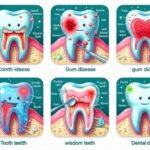Whether you’re a fitness enthusiast curious about heart rate or someone concerned about heart health, understanding the intricacies of the cardiovascular system is vital. Here, a cardiologist tackles common questions, from heart rate fluctuations to lifestyle impacts and treatment options.
Key Takeaways:
- Heart Rate Variability (HRV): HRV reflects the natural variations in heart rate, indicating a healthy cardiovascular system. Abnormalities may signal underlying issues.
- Heart Attack Signs: Recognizing symptoms like chest pressure, jaw or shoulder pain, shortness of breath, or extreme fatigue is crucial for prompt medical attention.
- Stents vs. Bypass Surgery: Depending on the severity and location of arterial blockages, both stents and bypass surgery offer viable treatment options, each with its own risks and benefits.
- Genetics and Heart Health: While genetics play a role in heart disease risk, lifestyle factors like diet, exercise, and smoking habits significantly influence cardiovascular health.
What Heart Rate is Considered Too High?
- There’s no universal “too high” heart rate; it varies based on factors like age, fitness level, and health status.
- As a general guide, aim for a maximum heart rate of 220 minus your age. During exercise, target 70-85% of this rate.
- Consistently exceeding 180 beats per minute may indicate excessive strain, necessitating a reduction in intensity.
Why Does the Heart “Skip a Beat”?
- Occasional skipped beats are common and often harmless, triggered by factors like caffeine intake or stress.
- Persistent skipped beats may signal arrhythmias, irregular heart rhythms that require medical evaluation and possibly an electrocardiogram (EKG) for diagnosis.
How Do EKGs Work?
- Electrocardiograms (EKGs) measure the heart’s electrical activity, highlighting irregularities in its rhythm or function.
- Normal EKGs display consistent patterns, while abnormalities like atrial fibrillation reveal irregular waveforms, indicating potential issues.
Can You Hear a Heartbeat Without a Stethoscope?
- Hearing your heartbeat, especially when lying down, is common and typically harmless.
- It may result from blood flow in the neck vessels and doesn’t usually signify a health concern.
Can Defibrillators Restart the Heart?
- Defibrillators can restore normal heart rhythm in specific instances, such as ventricular fibrillation.
- They’re ineffective during flatline situations but crucial for addressing abnormal rhythms like ventricular fibrillation to prevent cardiac arrest.
Is Broken Heart Syndrome Real?
- Broken heart syndrome, triggered by intense emotional stress, mimics heart attack symptoms but typically resolves over time.
- While it’s a genuine condition, prompt medical care and emotional support aid in recovery.
Why Is Resting Heart Rate Still High Despite Regular Exercise?
- Persistent high resting heart rates despite regular exercise may indicate inadequate cardiovascular fitness or underlying health issues.
- Monitoring heart rate trends and consulting a healthcare professional can provide insights into potential concerns.
What Are Signs of a Heart Attack?
- Classic heart attack symptoms include chest pressure, shoulder or jaw pain, shortness of breath, and fatigue.
- Prompt recognition and medical intervention are critical for minimizing damage and improving outcomes.
Does Low-Dose Aspirin Prevent Heart Attacks?
- Low-dose aspirin isn’t universally recommended for heart attack prevention in healthy individuals due to bleeding risks.
- It’s beneficial for those with existing cardiovascular disease or during acute heart attack situations to prevent clot formation.
What Diet Is Best for Reversing Heart Disease?
- Studies suggest plant-based diets rich in fiber and low in saturated fats may help reverse heart disease.
- Prioritize whole foods, fruits, vegetables, and lean proteins while minimizing processed foods and saturated fats.
How Does COVID Affect the Heart?
- COVID-19 can lead to heart complications, including inflammation, blood clotting, and myocardial damage.
- Prevention through vaccination and adherence to public health measures remain essential for safeguarding heart health.
How Do Genetics Influence Heart Disease Risk?
- Genetics contribute to heart disease risk, but lifestyle factors like diet and exercise play significant roles.
- Familial conditions like hypercholesterolemia and lifestyle habits impact heart health outcomes.
How Do Alcohol and Cigarettes Affect the Heart?
- Excessive alcohol consumption can weaken the heart muscle and increase the risk of heart failure.
- Cigarette smoking damages blood vessels, elevating blood pressure and cholesterol levels, predisposing individuals to heart disease.
How Does High Blood Pressure During Exercise Differ from Chronic Hypertension?
- Temporary blood pressure elevation during exercise is normal and beneficial for cardiovascular health.
- Chronic hypertension, however, poses long-term health risks, including heart disease and stroke, necessitating management and lifestyle modifications.
Understanding heart health involves recognizing symptoms, adopting heart-healthy habits, and seeking timely medical care. By staying informed and proactive, individuals can mitigate risks and maintain optimal cardiovascular wellness.













